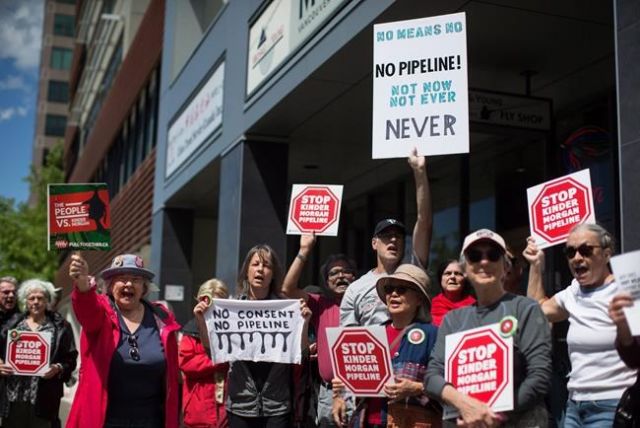
One of the leaders of a First Nations consortium planning to offer $6.8 billion for majority ownership of the Trans Mountain pipeline says federal government principles for Indigenous buyers are “exactly aligned” with its goals.
Harrie Vredenburg, a Project Reconciliation executive board member and professor at the University of Calgary’s Haskayne School of Business, says the principles unveiled by Finance Minister Bill Morneau on Monday don’t affect his group’s plan to invite all Indigenous communities in Western Canada to join in a united bid for 51 per cent of the pipeline.
The four points suggest that discussions of potential Indigenous ownership of the pipeline can proceed only if the communities involved have “meaningful economic participation,” if the deal can proceed in the spirit of reconciliation, and if the resulting entity works to the benefit of all Canadians and goes forward on a commercial basis.
Vredenburg says the principles are consistent with messages his organization has shared in meetings with federal department officials over the past five months.
He says the project, led by executive chairman Delbert Wapass, a former chief of the Thunderchild First Nation in Saskatchewan, is well-advanced and there have been meetings with investment banks, oil companies and First Nations.
Morneau has said the government won’t negotiate the sale of the pipeline it bought for $4.5 billion last summer until after construction of its controversial proposed expansion is “de-risked.”
Court-ordered consultations with affected Indigenous groups are expected to wrap up in May, allowing the expansion to go to Ottawa for a decision on approval.


